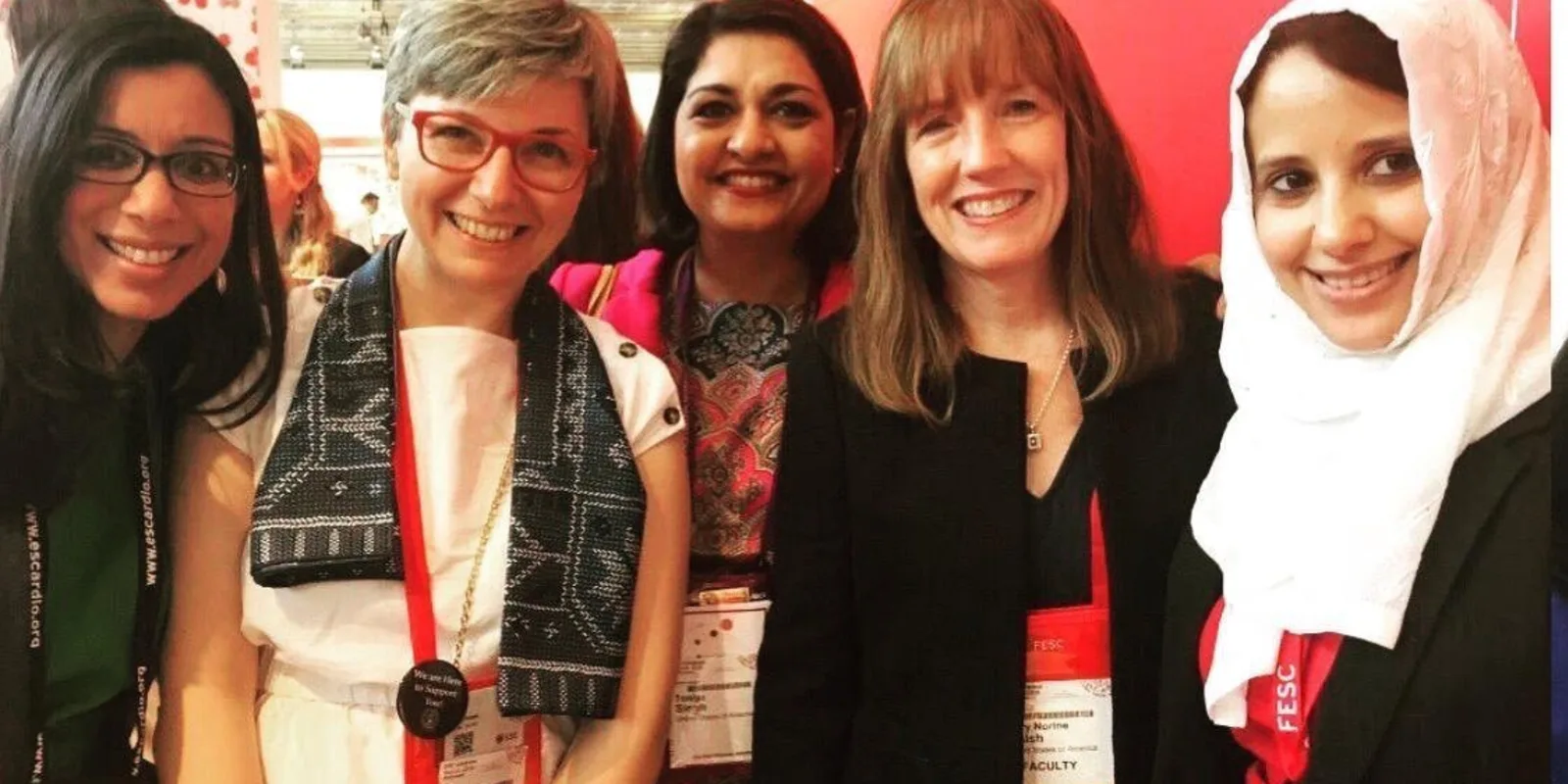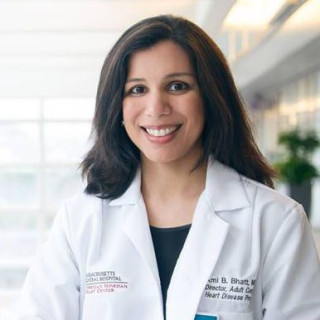
In this article, Dr. Bhatt interviews Dr. Alasnag, currently the only female interventional cardiologist in Saudi Arabia, and for 8 years prior, the only female interventional cardiologist in the entire Gulf region.
An impressive group of women cardiologists attended the recent European Society of Cardiology (ESC) meeting in Munich. Although still small in number, their voices and need for gender equity resonated throughout the conference and their contributions to cardiovascular clinical care and research were definitive. Women in interventional cardiology, however, are still few and far between. An ESC survey in 2016 revealed that the most common reason (29% of women surveyed) women did not choose interventional cardiology was because of a lack of opportunity. In the United States, Dr. Martha Gulati, Professor of Medicine and Chief of Cardiology, noted that while 13% of US cardiologists are women, only 7.4% are interventional cardiologists. I had the unique opportunity to meet and interview the only female interventional cardiologist in Saudi Arabia, Dr. Mirvat Alasnag, at the ESC meeting.
AB: Thank you, Dr. Alasnag, for speaking with us today. Let us start at the beginning. What led you to medicine and cardiology?
MA: In high school, my father had his first heart attack. It was his experience that led me to cardiology. With the care he received and a cardiopulmonary bypass graft operation, my father survived 28 years after the myocardial infarction (MI). That shaped my understanding of what medicine could offer in terms of quality of life. Seeing him live a full life, symptom free after a large anterior MI, I realized that cardiovascular medicine makes an enormous difference in people’s lives.
AB: What drew you to interventional cardiology specifically?
MA: I always loved working with my hands. Despite that, mentors encouraged me to pursue imaging, advising me there were many more potential job opportunities in echocardiography than in interventional cardiology. However, time in the catheterization lab was all I needed to convince me of my future path.
AB: Are you truly the only female interventional cardiologist in Saudi Arabia?
MA: I was the only female interventional cardiologist in the entire Gulf region for 8 years. Last year, a woman cardiologist, Dr. AlSheikh, who trained in the United Kingdom, became an interventional cardiologist in Bahrain and soon three more women physicians; Dr. Samargandy, Dr Osaimy, and Dr. Bawardy will be returning to Saudi Arabia after training abroad.
AB: What advice would you give female trainees who are looking at positions as interventional cardiologists in countries with very few women in cardiology?
MA: Go for it. Your passion will drive you. We live globally now. Find local or international mentors with shared experiences. Be specific in your questions, concerns, and search for answers. Your passion will enable you to sustain yourself through homesickness, culture shock, and rigorous training. You are likely more resilient than you realize.
AB: It sounds like you have felt that provision of medical care was not difficult, in fact it perhaps anchored you?
MA: Yes. If you express your passion, you will gain respect. I am dedicated, and I work hard. I don’t look at men as a different species. I tell women trainees to recognize that men are like you. They also have families, sleepless call nights, and challenging cases and patients. Being gender neutral is a fair approach. It is important to be cognizant that there will be days when you are challenged simply for being young, female, or physically petite, but patience and perseverance pays off. There was a time when my voice was not heard, but with persistence and hard work, colleagues and the community have come to respect what I have to say. It is now paying off for me. Patients and colleagues appreciate and trust my care and opinions. Trainees, male and female, seek me out and appreciate what I have to offer. All of them recognize I still have my passion.
AB: Thank you, Mirvat. We all appreciate you, your talent, candor, and willingness to share your story with us today.
Mirvat can be reached via twitter @mirvatalasnag and on linkedin.com/in/mirvat-alasnag.
Ami Bhatt, MD is the director of Outpatient Cardiology and the Adult Congenital Heart Disease Program at Massachusetts General Hospital and an active clinical cardiologist, clinical investigator and educator. She innovates in the cardiology space at the MGH Heart Center in the domains of telemedicine for patient visits, adolescent education regarding heart health, and empowering individuals with congenital heart disease to lead full and productive lives. Her clinical interests include pregnancy and congenital heart disease as well as atherosclerotic disease prevention in the congenital heart population. Her work has most recently centered on applying design thinking to the multidisciplinary care process including multimodality teleconferences and adoption of mobile health technologies along with Telemedicine clinics. She strongly believes that the future of outpatient cardiac care incorporates hospital-based, local community and in-home care. She is currently working on creating transparent systems for coordinating and achieving a team-based longitudinal outpatient infrastructure for care and a better experience for patients, physicians, and teams. She is also a 2018–2019 Doximity Author.







